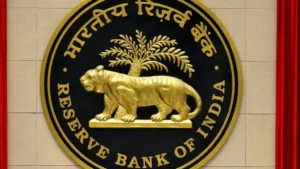The Securities and Exchange Board of India (SEBI) has introduced a range of proposed changes for Real Estate Investment Trusts (REITs), Infrastructure Investment Trusts (InvITs), and Small and Medium REITs (SM REITs) aimed at enhancing market flexibility and investor protection. This aligns with SEBI’s ongoing efforts to strengthen governance, reduce financial risk, and improve operational efficiency in these investment structures.
Key Proposals and Operational Flexibility
Interest Rate Derivatives for Hedging: SEBI is considering allowing REITs, SM REITs, and InvITs to use interest rate derivatives, such as swaps, for hedging against interest rate fluctuations. This move is intended to help stabilize cash flows, particularly for long-term infrastructure projects.
Recognition of Fixed Deposits in Leverage Calculations: Fixed deposits may soon be treated as cash equivalents for calculating leverage limits, enhancing financial management flexibility for REITs and InvITs.
Locked-in Units Transferability: SEBI suggests allowing locked-in units to be transferred among sponsors and their group entities, akin to existing norms for promoters in listed companies. This change aims to provide sponsors with flexibility while retaining “skin in the game” in these trusts.
Enhanced Governance and Financial Clarity
Quarterly Reporting and Governance Norms: Proposed amendments require InvITs to reflect their standalone performance in quarterly results, aligning them with REIT governance standards. Additionally, SEBI recommends a balanced composition of independent and non-executive directors in the Nomination and Remuneration Committees (NRCs) of REIT and InvIT managers.
Broadening Definition of Common Infrastructure: SEBI proposes defining “Common Infrastructure” to cover facilities like power plants and water systems serving multiple REIT assets, promoting efficient resource use across projects.
Liquid Mutual Fund Investments: The introduction of liquid mutual fund investments is proposed to offer further diversification options for managing REIT cash flows.
Next Steps
SEBI has invited public comments on these proposals until November 13, 2024, indicating that the feedback will shape final regulations. These reforms are expected to bring greater flexibility, enhance transparency, and bolster investor confidence in India’s REIT and InvIT markets.
Here is a table summarizing the key points of SEBI’s recent proposals for REITs and InvITs
| Aspect | Details |
|---|---|
| Why in News | SEBI has proposed reforms aimed at enhancing flexibility, operational efficiency, and investor protection for REITs and InvITs. |
| Interest Rate Derivatives | SEBI proposes allowing REITs, SM REITs, and InvITs to use interest rate derivatives like swaps to hedge against rate fluctuations. This aims to stabilize cash flows for long-term projects. |
| Fixed Deposits in Leverage Calculations | Fixed deposits may now be considered as cash equivalents in leverage calculations for REITs and InvITs, enabling better financial management. |
| Locked-in Units Transferability | SEBI suggests allowing the transfer of locked-in units among sponsors and their affiliates, similar to promoter rules in listed companies, to provide flexibility while maintaining commitment. |
| Quarterly Reporting Alignment | Proposed changes require InvITs to report quarterly results based on standalone performance, aligning with REIT standards and increasing transparency. |
| Nomination and Remuneration Committees (NRCs) | SEBI recommends a mix of independent and non-executive directors in NRCs of REIT and InvIT managers, mirroring listed company governance standards. |
| Definition of Common Infrastructure | Expanded to include facilities like power plants and water treatment systems that serve multiple REIT assets, allowing for more efficient operations. |
| Liquid Mutual Fund Investments | SEBI is considering allowing REITs to invest in liquid mutual funds for better cash flow management and diversification options. |
| Public Consultation | SEBI has invited public feedback on these proposals, with comments open until November 13, 2024. |




 PNB Announces ‘PNB Soldierathon 2026’ Ah...
PNB Announces ‘PNB Soldierathon 2026’ Ah...
 RBI Draft Loan Recovery Rules 2026: Key ...
RBI Draft Loan Recovery Rules 2026: Key ...
 RBI Digital Payments Index Soars to 516....
RBI Digital Payments Index Soars to 516....








